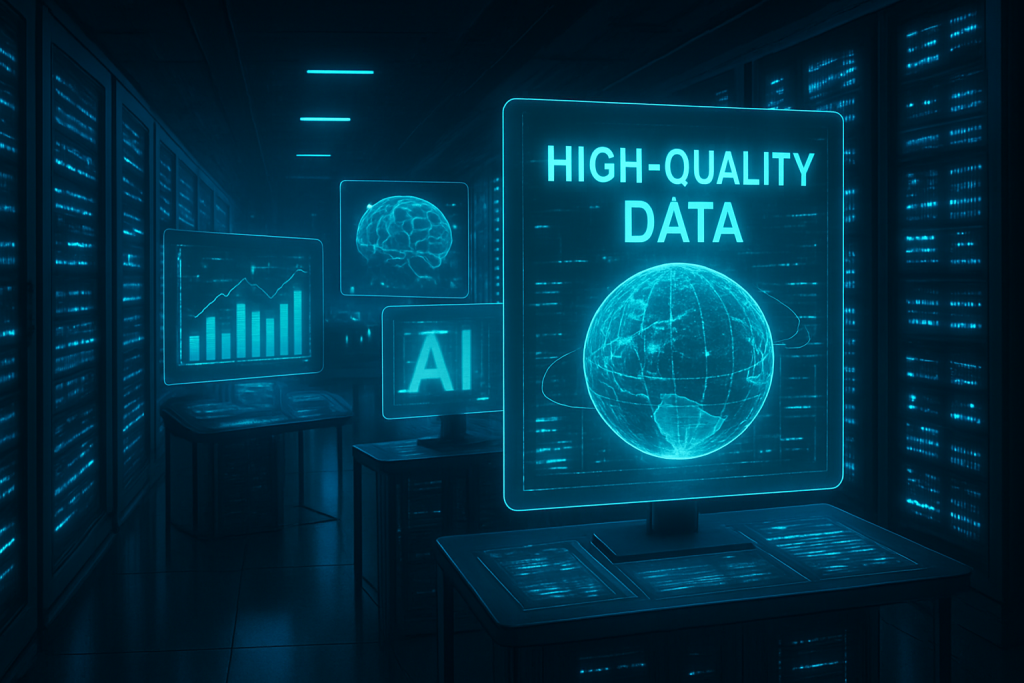The year is 2025. Flying cars, sadly, are still a pipe dream. But artificial intelligence? It’s woven into the very fabric of our digital lives, from the algorithms curating our social media feeds to the virtual assistants managing our smart homes. And the race to build the smartest, most capable AI is hotter than ever. Yesterday, Meta dropped a bombshell that sent ripples throughout Silicon Valley: a staggering $14.3 billion investment in Scale AI.
For those unfamiliar, Scale AI isn’t exactly a household name, but in the world of AI development, they’re rock stars. Think of them as the pit crew for Formula One AI, ensuring that the engines-in this case, the machine learning models-are fueled with the highest octane data possible. They specialize in data annotation, which, while it might sound dull, is absolutely crucial. Imagine trying to teach a self-driving car to recognize a stop sign. You need to show it thousands, millions even, of images of stop signs, each meticulously labeled. That’s where Scale AI comes in, providing the tools and the human expertise to make sure those labels are accurate and comprehensive.
Meta’s massive investment isn’t just about keeping up with the Joneses-or, more accurately, keeping up with Google, Amazon, and Microsoft in the AI arms race. It’s a strategic power play, a clear signal that Meta is doubling down on AI as the foundation for its future. This isn’t just about tweaking the algorithm that decides which cat videos you see first (though, let’s be honest, that’s important too). This is about fundamentally transforming how Meta operates, from enhancing its social media platforms to powering its virtual reality ambitions and developing entirely new AI-driven products and services. Think Horizon Worlds, but populated by far more intelligent, responsive, and perhaps even slightly unsettling, avatars.
Why $14.3 billion? It’s a number that makes your head spin, but it reflects the sheer scale of the challenge and the potential rewards. AI models, especially the large language models that are all the rage these days, are data-hungry beasts. They require vast quantities of information to learn and improve. And not just any data; it needs to be high-quality, accurately labeled, and representative of the real world. Garbage in, garbage out, as the old saying goes, and in the world of AI, that garbage can lead to biased algorithms, inaccurate predictions, and even dangerous outcomes.
This investment grants Meta a significant, although undisclosed, stake in Scale AI, effectively forging a closer, more integrated partnership. Expect to see Meta deeply involved in shaping Scale AI’s future direction, influencing its technology roadmap, and prioritizing its own specific AI needs. It’s like acquiring a dedicated AI research and development lab, but without all the headaches of actually running it yourself.
The Ripple Effect: What This Means for the AI Landscape
Meta’s move is a wake-up call for the rest of the tech industry. It underscores the growing importance of data quality as a competitive differentiator. Expect to see other tech giants scrambling to secure their own data annotation pipelines, either through strategic investments, acquisitions, or by building their own in-house capabilities. The data annotation market, already a multi-billion-dollar industry, is about to get even hotter.
Beyond the immediate financial implications, this partnership could also have a profound impact on the ethical development of AI. Both Meta and Scale AI have publicly committed to responsible AI practices, emphasizing the importance of training AI systems on well-curated and unbiased data. By ensuring that their AI models are less susceptible to bias, they hope to mitigate the potential risks associated with AI deployment, such as perpetuating harmful stereotypes or making discriminatory decisions. It’s a noble goal, but one that requires constant vigilance and a willingness to confront uncomfortable truths about the data we use to train our machines.
But let’s not get too starry-eyed. While ethical AI is a worthy pursuit, the primary driver behind this investment is, undoubtedly, profit. Meta is betting big on AI to drive user engagement, personalize experiences, and ultimately, sell more ads. They’re not alone. The entire tech industry is locked in a relentless pursuit of AI-powered growth, and the stakes are higher than ever.
The Philosophical Angle: Are We Building Skynet? (Probably Not, But…)
Whenever there’s a major AI announcement, the inevitable question arises: are we on the path to Skynet? Will machines eventually become self-aware and turn against their creators? While that scenario remains firmly in the realm of science fiction (for now), Meta’s investment in Scale AI does raise some fundamental questions about the future of AI and its impact on humanity.
As AI systems become more sophisticated, they’re increasingly being used to make decisions that affect our lives, from loan applications to criminal justice. It’s crucial that these systems are fair, transparent, and accountable. Ensuring that AI is trained on high-quality, unbiased data is a critical step in that direction, but it’s not a silver bullet. We also need to develop robust oversight mechanisms, ethical guidelines, and legal frameworks to govern the development and deployment of AI. Otherwise, we risk creating a world where algorithms perpetuate existing inequalities and undermine our fundamental rights. It’s a brave new world, but one that requires careful navigation.
In conclusion, Meta’s $14.3 billion investment in Scale AI is more than just a financial transaction. It’s a statement of intent, a recognition of the critical role that data quality plays in the future of AI. It’s a move that will likely trigger a wave of similar investments and acquisitions, further accelerating the AI arms race. And it’s a reminder that as we build increasingly powerful AI systems, we must also grapple with the ethical, societal, and philosophical implications of our creations. The future is being written, one line of code, one data label, at a time.
Discover more from Just Buzz
Subscribe to get the latest posts sent to your email.


